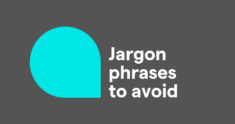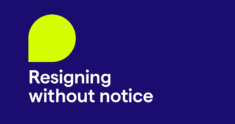
Chances are you already know a little bit about bias. People are constantly judged for what they wear, how they speak, how much is in their bank accounts — and opportunities can be lost simply because someone sees you inaccurately. Bias creeps into our careers, too — and unfortunately, we can be stereotyped by a recruiter based on our résumés alone.
If you’re unemployed, you could have a significant amount of bias working against you. Recruiters may rank you lower than other candidates, or even dismiss your application altogether.
While overcoming this bias can be tough, it’s hardly impossible. Use these tips to change how a recruiter sees you and get a new job or career stat.
1 Be Professional
One misconception about unemployed applicants could be that you’ve lost your sense of professionalism. But you can prove them wrong, says career coach Hallie Crawford.
“Do not call the recruiter several times in a day or week,” she advises. “Your initial contact, as well as follow-ups, must be handled professionally. Otherwise, the recruiter may assume you wouldn’t handle other [office] matters professionally.”
After all, Crawford points out, “the recruiter really works for the hiring company first — and then for you.” So act like it.
2 Be Transparent
When you’re unemployed, don’t try to hide it. Odds are, the recruiter will likely find out anyway, and then he or she won’t be willing to consider you. Instead, Crawford advises, be open with the recruiter, “but not overly self-promotional.” In other words, “don’t make claims that won’t stand up after a background check” in order to make yourself sound better.
Just because you’re unemployed doesn’t mean you don’t have skills and talent — so don’t be too ashamed to show them off. But make sure you can deliver on any promises you may make.
3 Have a Clear Vision
Beyond gaining employment, what do you want from your next new job? It’s key that you know this, says Crawford, and how you can get it — especially if you’re working with a recruiter at an agency that’s helping to match you with the right job and company.
“Being able to express these things to a recruiter will really help him or her . . . guide you to the organization that would be the best fit for you,” Crawford explains. After all, she points out, “they are not career coaches, and they won’t do this part for you.”
4 Adapt Your Style
Crawford suggests that you adapt the way you work, within reason, to your recruiter’s rhythm.
“Communicate with him or her in his or her preferred method of communication, like email versus phone, for example,” she says. “Be friendly and amiable, pay attention to developing a positive professional relationship with them and promote yourself for the position.”
If you make the recruiter’s job easy for him or her, while showing off your personality and professional strengths, he or she is more likely to forget about your employment status.
“Recruiters and employers value soft skills as well as hard skills and qualifications,” Crawford points out, “so you want to show them you have those soft skills — a professional demeanor, ability to follow up, organizational skills and so on.”





